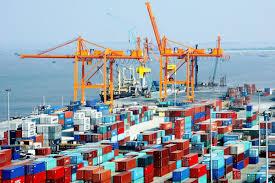Tariff exemptions for Chinese, ASEAN goods since 2018
VGP – Viet Nam’s special preferential import tax rates applied for the Framework Agreement on Comprehensive Economic Cooperation between ASEAN and China (the ACFTA Agreement) in the 2018-2022 phase will help reduce import tariff lines to 0% in 2018.
 |
|
Illustration photo |
In addition, in the period from 2018-2022, the import tax rate of 50% will still be applied for around 200 tariff lines, including that on eggs, salt, sugar and tobacco from 2018.
The ACFTA Agreement was signed in November 2002. In November 2015, in a joint effort to move ASEAN-China relation to a higher level, Parties has agreed to sign on the Protocol to Amend the Framework Agreement on Comprehensive Economic Co-operation and Certain Agreements there under between the ASEAN and China.
Under the Protocol, Parties agreed to, on the basis of mutual benefit, explore and undertake economic cooperation activities in such areas as trade-related issues, agriculture, fishery, forestry and forestry products, information and communications technology, human resource development, investment, trade in services, tourism, industrial cooperation, transport, intellectual property rights, small and medium enterprises, environment and other fields related to economic and technical cooperation as may be mutually agreed upon by the Parties.
By Thuy Dung

